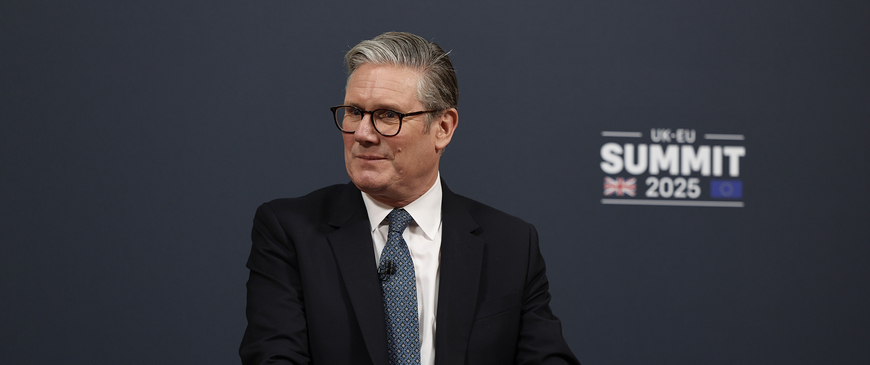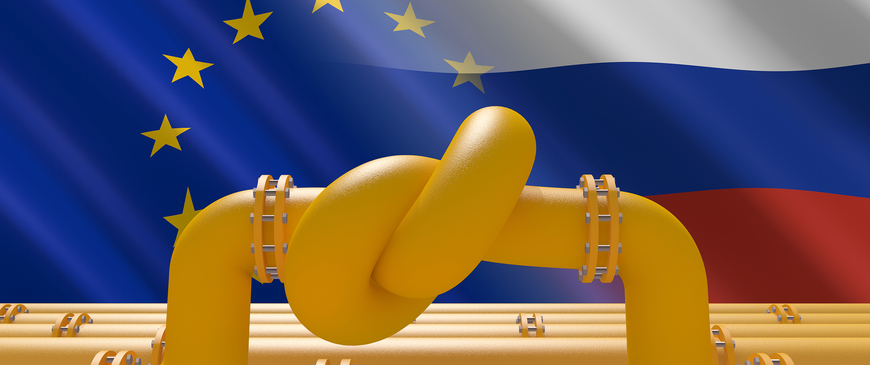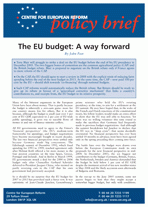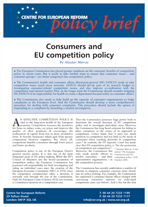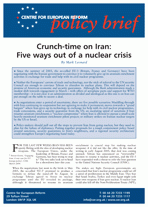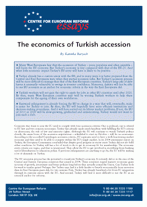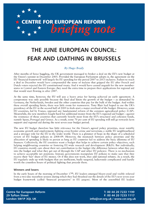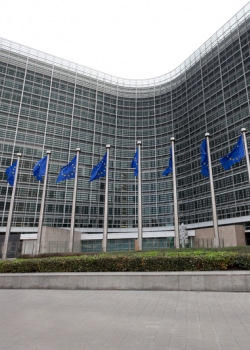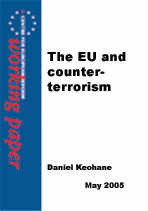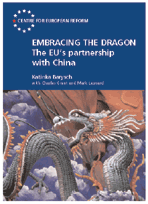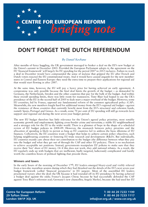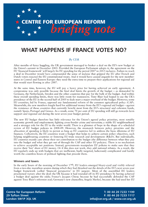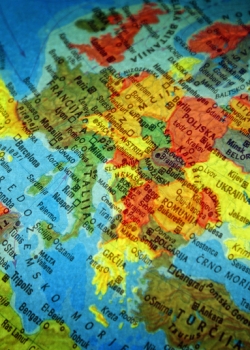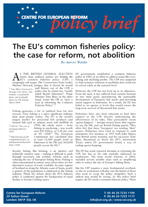Research
The EU budget: A way forward
01 September 2005
Many of the bitterest arguments in the European Union have been about money. That is partly because the budget is inherently a zero-sum game: more for one country means less for others.
Consumers and EU competition policy
01 September 2005
An effective competition policy is vital to the long-term health of the European economy. Competition increases the incentives for firms to reduce costs, cut prices and improve the quality of their products.
Crunch time on Iran: Five ways out of a nuclear crisis
01 August 2005
For the last few weeks Iran has been openly flirting with the idea of developing nuclear weapons. The European Union, under the leadership of Britain, France and Germany, has been trying to stop it.
Liberal versus social Europe
01 August 2005
Europe is in the grip of a fundamental debate about its economic future, or at least that is what some politicians and many journalists would have us believe.
A bad European dream
01 August 2005
On a grey Thursday morning in June 2006, Lee Barker, a 29-year-old Midlands businessman, was packing his bags to go to Germany.
Europe’s social dilemma
01 August 2005
Of all the items on the agenda of the British EU presidency, perhaps the least expected is a debate on ‘social Europe’. Tired of being crudely caricatured as ‘neoliberal’, Tony Blair has invited EU leaders to an informal summit in October to discuss the future of Europe’s social model.
Issue 43 - 2005
29 July 2005
- Liberal versus social Europe, Katinka Barysch
- A bad European dream, Daniel Keohane
- Europe’s social dilemma, Alasdair Murray
The economics of Turkish accession
01 July 2005
Countries that want to join the EU need to comply with four accession criteria: One is political, one is related to EU law and two concern economics.
Unshackling services is the key to Europe's economic future
03 June 2005
In the last edition of the CER Bulletin, John Monks, secretary-general of the European Trade Union Confederation (ETUC), wrote an interesting and engaging - but in my view incorrect - article on the Commission's draft directive for opening up EU services markets.
When the dust settles
03 June 2005
The French and Dutch rejections of the constitutional treaty throw into stark relief the divisions between two groups of EU countries. On one side are countries - including Britain, Ireland, the Nordic three plus the majority of the new member-states - who (crudely put) favour a more economically liberal and diverse European Union.
The June European Council: Fear and loathing in Brussels?
01 June 2005
The French and Dutch No votes on the EU constitutional treaty have rocked Europe's political establishment. The EU's heads of government will debate the future of the document at their summit – and the equally fractious issue of the EU's budget – in Brussels on 16 June 2005.
Europe beyond the referendums
01 June 2005
The French and Dutch have not only stopped the passage of the constitutional treaty, but also, quite probably, the wave of European integration that began 20 years ago with Jacques Delors, the single market and the Single European Act.
Issue 42 - 2005
27 May 2005
- Europe beyond the referendums, Charles Grant
- Unshackling services is the key to Europe's economic future, Digby Jones
- When the dust settles, Alasdair Murray
The EU and counter-terrorism
06 May 2005
Ever since terrorist bombs killed nearly 200 people in Madrid in March 2004, EU politicians have argued for greater European co-operation in fighting terrorism.
Embracing the dragon: The EU's partnership with China
02 May 2005
The EU is now China's biggest trading partner. European companies are ploughing billions of euro into the booming Chinese market. The EU offers Beijing help in areas such as fighting pollution and writing better laws.
Don't forget the Dutch referendum
02 May 2005
Three days after the French vote on the EU constitutional treaty on 29 May 2005 the Netherlands will hold its referendum. Current opinion polls predict that the Dutch will reject the treaty.
What happens if France votes No?
02 May 2005
In just over two weeks France will hold a referendum on the EU constitutional treaty. The outcome of the 29 May 2005 referendum remains on a knife-edge with the latest polls suggesting the country is split down the middle.
Clumsy politics on services
01 April 2005
It may be too early to read the last rites for the EU's proposed services directive. But even the strongest supporters of the directive, which seeks to liberalise services ranging from estate agents to employment firms, must now see that the prospects for its introduction are bleak.
One year after enlargement
01 April 2005
When the EU took in ten more countries in May 2004, many people across Europe feared that an enlargement of that size would wreak havoc in the European economy and bring EU decision-making to a halt.
The EU's common fisheries policy: The case for reform, not abolition
01 April 2005
During the British general election campaign, political parties have found the EU's common fisheries policy (CFP) a temptingly soft target.

